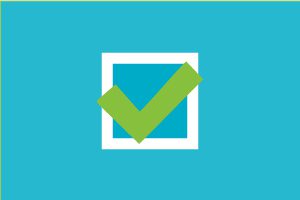Many parents who have a child struggling with substance use notice that these concerns start to consume huge amounts of time and energy. As you’ve probably experienced, under the best of circumstances with kids, it’s hard to carve out space to focus on yourself. When your child and your family is dealing with something as complicated and anxiety-provoking as substance abuse, it can feel impossible to have room for anything other than trying to help, reacting to the latest crisis, and dealing with all the “have tos” minute to minute, day to day.
In this environment, taking care of yourself falls to the bottom of the list, if it makes the list at all! However, even though it might be the furthest thing from your mind (e.g. how can I go to the movies when I’m worried my child might be out getting high again?), finding some room to focus on self-care is really vital if you are going to be and remain helpful to your child and the rest of your family. This is about resisting your instincts to put your life aside by going into emergency/panic mode.
This is a long-term project; a marathon, not a sprint. Similar to running a marathon, you need to keep your energy reserves up and pace yourself for the long and sometimes bumpy road ahead. We are not being touchy-feely psychologists when we say this. We are trying to help you be tactical in the midst of a difficult struggle, and it matters. Try to keep in mind what they say on planes before takeoff: if the oxygen masks are needed, resist the urge to put it on others before you put it on yourself. Many people have the impulse to help their loved ones BEFORE they help themselves. But the oxygen recommendation is not that you alone use it; it’s to make sure you are getting at least some oxygen, and don’t entirely ignore yourself. Without attention to this, the “helpers” (that’s you) get lost along the way (“lack of oxygen”), and can’t guide, direct, think, and help anymore.
We also realize that no one wants to hear that the problem they are facing is likely to be a long haul as opposed to a short crisis. We do know, however, that taking care of YOU will help YOU ALL stay healthy as you navigate this, and will also help you be as effective as possible in working on all the challenges involved in trying to help your child.
We recommend that you spend some time each week doing something that makes you feel good, relaxed, content, soothed — something that’s a WANT, not a SHOULD. We recommend that each week, you take a few minutes to review how your self-care is going and to set reasonable, SMART goals (Specific, Measurable, Attainable, Relevant, Timely) for taking care of yourself in the week ahead. You might find yourself wondering how in the world you can make this a priority when you have so many other, more urgent demands to attend to. We ask you to try, because the oxygen mask metaphor is true: you won’t be any good to anyone else if you are not taking care of you.
What’s your SMART self-care goal for this week?

Self-Care Isn't Just For Yourself
You can help your child better by learning to take care of yourself, and manage all of the complicated emotions that go with caring for a child struggling with substance use.
